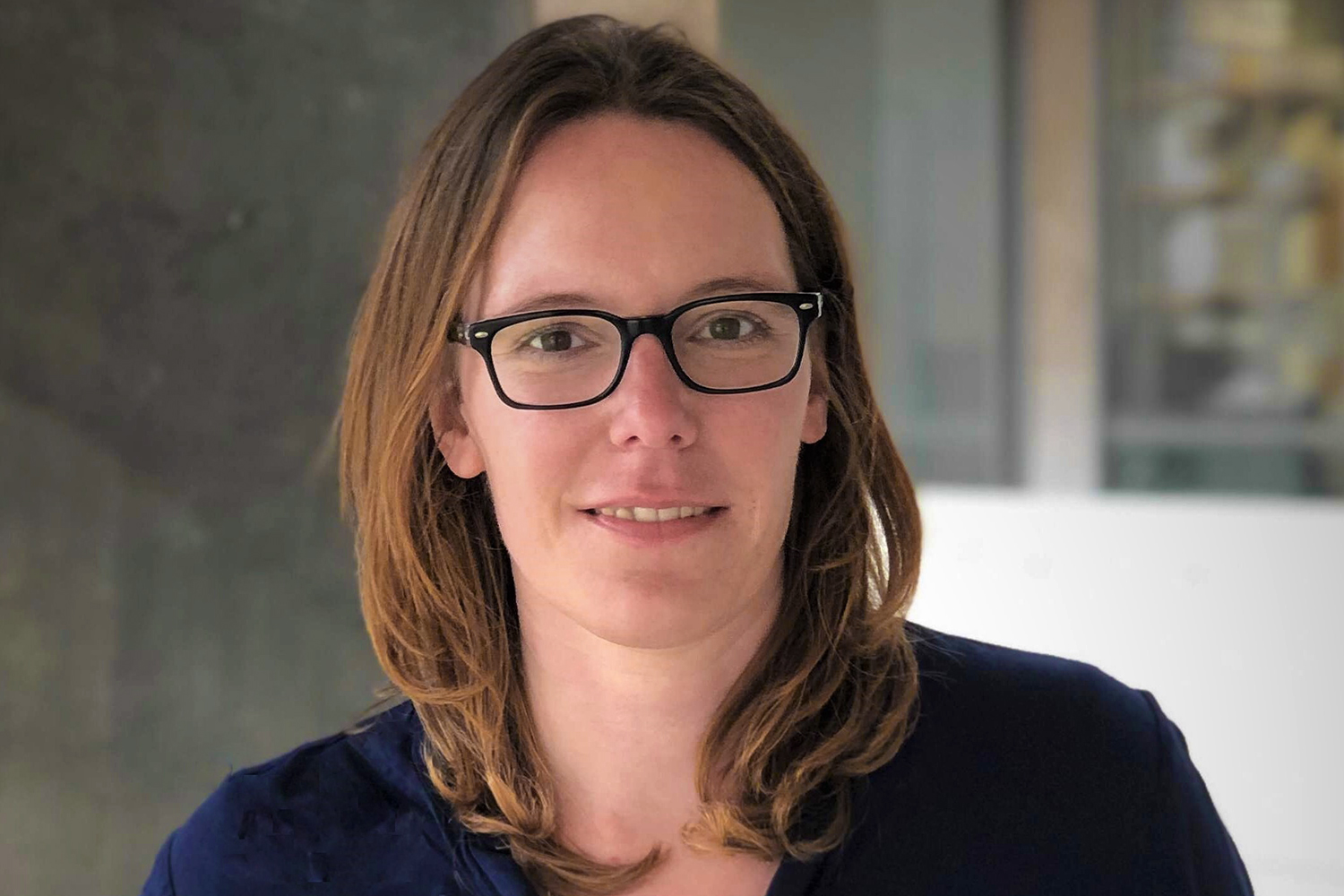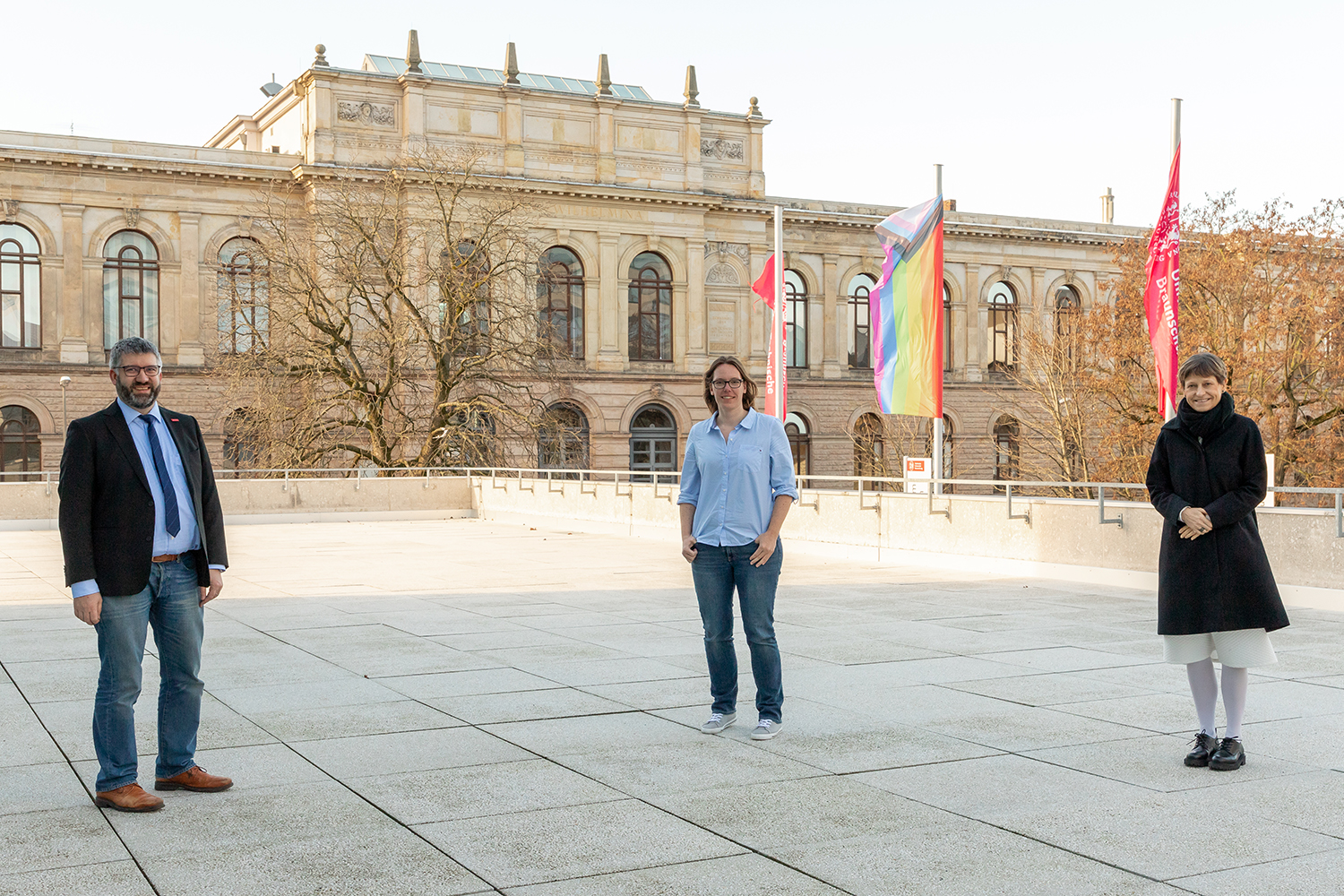“I am fascinated by the complexity of metabolism” Professor Thekla Cordes new at the Institute of Biochemistry, Biotechnology, and Bioinformatics
Since mid-February 2022 Professor Thekla Cordes has been teaching and researching in the field of cellular metabolism at the TU Braunschweig at the BRICS. The biotechnologist studied in Braunschweig, but her work took her out into the world. Most recently she worked in the USA. As a scientist, she focuses on researching metabolism and how it influences human health.

Prof. Thekla Cordes. Bildnachweis:
Have you arrived safely at the TU Braunschweig?
Yes. Absolutely. I left sunny Southern California and moved back to Braunschweig in February. I spent over 10 years at industrial and academic institutions outside of Germany and I am excited to „relearn“ about the German Culture.
Why did you choose the TU Braunschweig?
I studied Biotechnology here at TU Braunschweig and since then I am fascinated by the research environment in Braunschweig. In fact, I recall playing soccer on the lawn where the BRICS is located now. The proximity to researcher with interests in Infection is excellent and I am excited to expand my existing collaborations and to build new ones.
What does your research focus on?
The broader theme of my research focuses on how metabolism, small molecules, and biochemical pathways influence human health and disease, including infections, cancer, or brain disorders. To visualize how different nutrients are metabolized by the body we employ isotope tracers and mass spectrometry. This engineering approach is similar to adding a dye into a river with branches that allows us to visualize (and follow) the flow of the water. Ultimately, we aim to identify new (or improve existing) treatment strategies to help patients. For instance, we also work in close interaction with researcher at the HZI to better understand how metabolism is reprogramed in infectious diseases.
Why did you decide to focus your research on metabolism?
I always studied biological systems from an engineer’s point of view due to my studies in Biotechnology and my time at Novartis. This engineering perspective ultimately led me to study metabolism and how metabolic dysfunction contributes to human diseases. I am fascinated by the complexity of biochemical pathways and to learn how small molecules influence the function of cells in our body.

Dean Prof. Christoph Jacob, Prof. Thekla Cordes and President Prof. Angela Ittel. Bildnachweis: Kristina Rottig/TU Braunschweig
What was your best highlight as a scientist?
I had plenty of outstanding experiences with great research projects and awards at international institutions, including UCSD (University of California, San Diego) and the SALK Institute for Biological Studies (La Jolla, CA, USA). However, training young scientists and helping them grow in their careers is my greatest highlight.
What does good teaching mean to you?
Due to the complexity of biochemical pathways, many students think of biochemistry as a black box that is challenging to understand. Alternative teaching and learning approaches may better reflect the need of our students to stay focused and motivated. Part of my teaching was recently supported by „ProDiGi – Promoting Digital education through Global Interconnection“ and I hope to increase the student’s interest in metabolic research.
What advice would you like to give to students?
Look beyond the box and be excited about the stuff that you have not yet heard about. Change is good. And, most importantly, enjoy your work and have fun with your peers and your team. Our cellular metabolism group is expanding and if you are interested in the complexity of metabolism you are welcome to swing by at our lab located at the BRICS!
Thank you very much.
